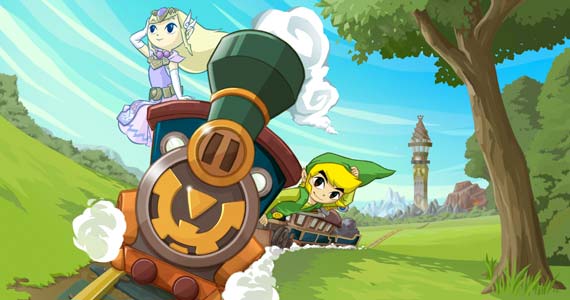
My first GDC glimpse of Link traveling into view aboard a train provoked a knee-jerk reaction that caused the word “gimmicky” to slip passed my lips. And though the impulse was earnest, it was a poor descriptor considering that the industry is at least 90% gimmick, with the remaining 10% left to fight it out between inspiration and other mysterious elements.
It was also an inadequate word to describe the way Nintendo is altering the legacy earned by The Legend of Zelda to date, which isn’t changing simply because new installments involve different modes of transportation in Hyrule, but because the emphasis on that concern shifts the entirety of the experience along with the significance of one of the industry’s most treasured franchises.
But let’s start out on a more solid footing by restating the obvious and acknowledge that The Legend of Zelda is the industry’s example of the oldest story in our possession. For the most part, each new entry to the series is a retelling of the hero’s story, told to new generations with subtle variations regarding the how and why to represent evolving sensibilities and ideas, but always anchored by a idealized image of human development. Though Spirit Tracks deviates with a more specific attempt at placing itself within a timeline, the game still takes advantage of the formula that furnishes the series with this reputation, failing to recognize the burden of responsibility and expectation the brand carries.